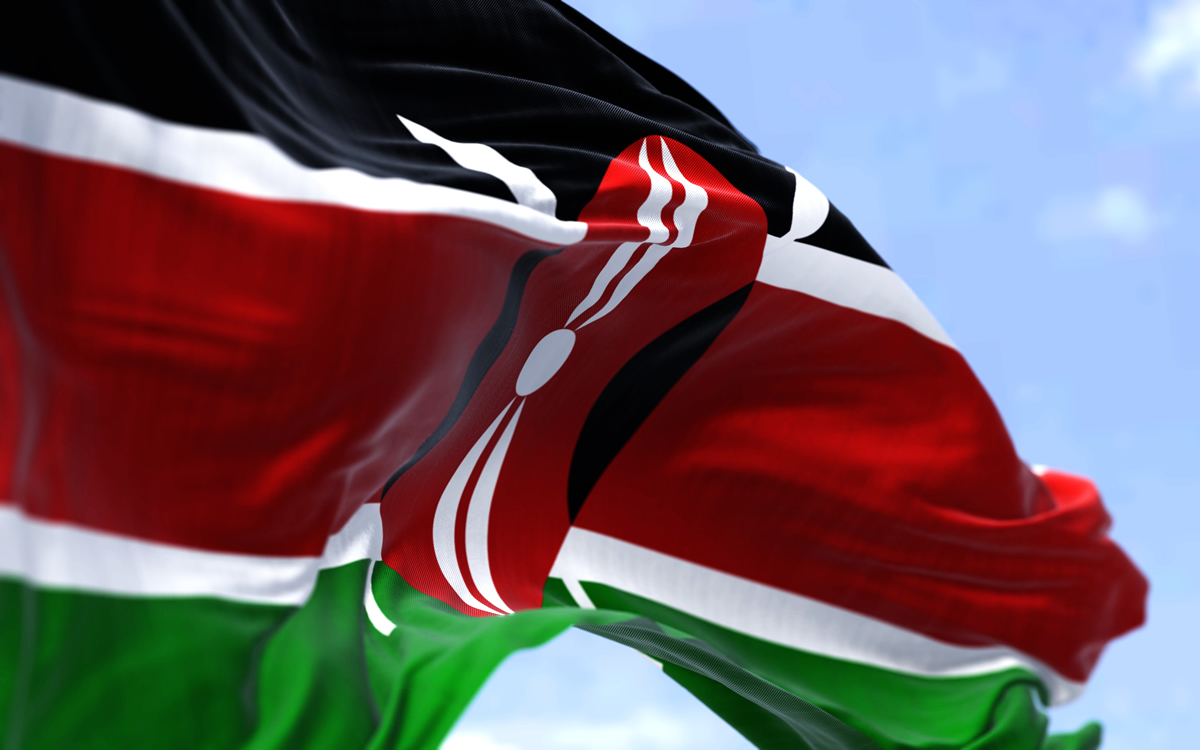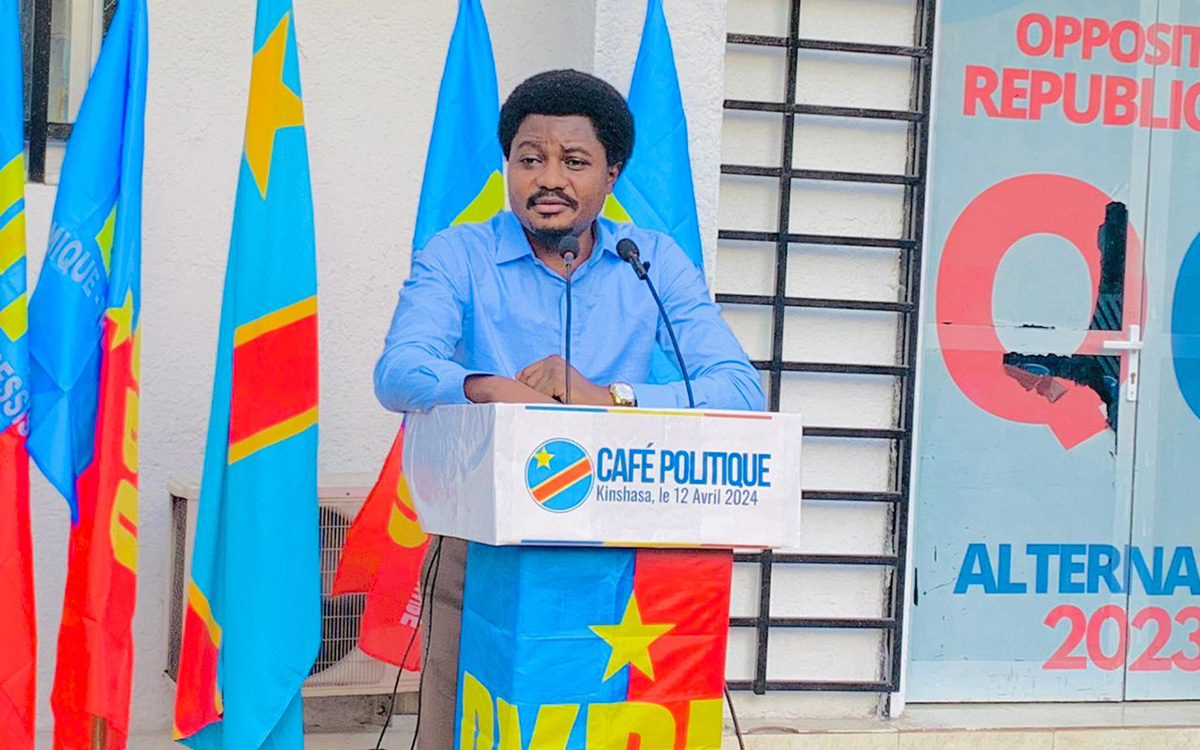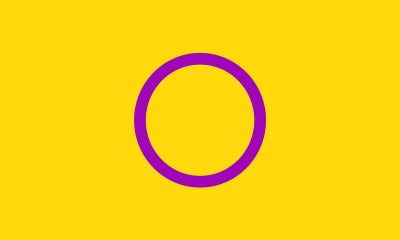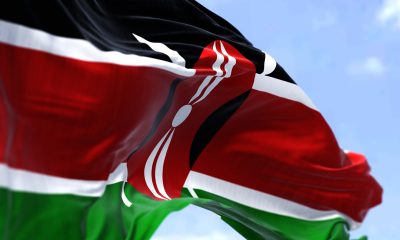Africa
Intersex Kenyans see significant gains since landmark law took effect
MPs approved statute last year

The push for intersex people to enjoy equal rights as Kenya’s third sex has recorded significant gains since a landmark law took effect last July.
Intersex people arrested for breaking the law can now be presented in court as intersex, since prosecutors have adopted the special ‘I’ sex marker for the group in charging documents.
This addresses the problem of authorities identifying intersex people for trial that became public in 2006 when police officers could not tell the sex of a detainee they perceived as a man who had been accused of a violent robbery. They had strip-searched him.
The gains noted in the latest report by the country’s Intersex Persons Implementation Coordination Committee also note the inclusion of intersex concepts in Kenya’s new education curriculum for awareness.
The IPICC falls under the purview of Kenya’s National Commission on Human Rights.
Intersex awareness in schools for recognition and capacity building in the future targets adolescents at the junior secondary level where they are educated on the reproductive system.
Veronica Mwangi, the IPICC’s head of secretariat who spoke to Washington Blade, commended the Office of the Director of Public Prosecutions for introducing the ‘I’ sex marker for intersex people in charging documents.
“We have made gains in the criminal justice but we should not go back to the tendencies where intersex persons only require a lot of attention when it comes to crime. It is a misconception that misses the map,” she said.
Citing a proposed Intersex Persons Bill 2023 currently undergoing public comment before being presented for debate in Parliament, Mwangi believes it envisages more benefits to intersex people.
For instance, the bill proposes access to more comprehensive medical attention for intersex people during surgeries and expensive medical examinations like Karyotype, a DNA and hormonal composition test that costs between $900-$1,000.
The bill would also require medical insurance providers to come up with an affordable, unique package that addresses the needs of intersex people by taking into account the reality of their lived experiences.
“The reality of the matter is you may give birth to an intersex child as a girl but later it turns out to be a boy. Hence the medical package that was given to the girl may not apply to the boy,” Mwangi said.
She added the medical insurance policy should be capable of responding to such changes, since intersex people will always have medical needs that keep shifting.
The bill would also allow intersex people to change their sex marker at any time to reflect their new status after undergoing a comprehensive medical examination and a medical certificate to prove it. The measure would also demand the government to recognize intersex people as a vulnerable group, such as those living with disabilities, women, young people and orphans, in order to more easily access social protection programs.
It would further require employers to consider intersex people for employment and the Kenya Examination Council to support the registration of intersex people’s’ academic documents that indicate their name has changed because of a legal sex change.
The Civil Registration Services, a government agency that documenting all births and deaths, has already been working closely with IPICC to change names on the birth certificates of intersex people to reflect their correct sex for easier access to public services.
Kenya became the first African country to grant equal rights and recognition to intersex people in 2022. It is also the first nation on the continent and the second in the world after Australia to count intersex people in a Census in 2019.
The survey showed 1,524 Kenyans were intersex.
After many years of marginalization and discrimination, the IPICC progress report states that several intersex people for the first time were involved in monitoring Kenya’s August 2022 general election as observers. Other intersex people subjected themselves to the electoral process to be nominated or elected as county assembly representatives, the lowest electoral position, including one in the Kenyan capital of Nairobi.
“This was a bold move and a big achievement because, for the first time in Kenya, intersex persons came out and tested the waters in politics,” Mwangi said.
She cited stigma and fear among intersex people in presenting conflicting documents about their sex to the electoral commission for clearance as the cause of staying away from politics before the enactment of the law that recognizes them. Mwangi urged intersex people to come out and take advance of available opportunities and assistance, since most of them don’t and it becomes hard to reach them.
Since the landmark law came into force in July last year; several psychosocial support groups for intersex persons, their parents and caregivers have been established in the country to offer any necessary assistance that includes counselling. The IPICC has also created a database of intersex people, a text message service and a toll-free number to report cases of discrimination and to advocate on their behalf.
Oct. 26, 2022, also marked the first official event that commemorated Intersex Awareness Day in Kenya.
Africa
Ugandan activists appeal ruling that upheld Anti-Homosexuality Act
Country’s Constitutional Court refused to ‘nullify’ law

Twenty-two LGBTQ activists in Uganda have appealed this month’s ruling that upheld the country’s Anti-Homosexuality Act.
The Constitutional Court on April 3 refused to “nullify the Anti-Homosexuality Act in its totality.”
President Yoweri Museveni last May signed the law, which contains a death penalty provision for “aggravated homosexuality.”
The U.S. subsequently imposed visa restrictions on Ugandan officials and removed the country from a program that allows sub-Saharan African countries to trade duty-free with the U.S. The World Bank Group also announced the suspension of new loans to Uganda.
Media reports indicate Sexual Minorities Uganda Executive Director Frank Mugisha and Jacqueline Kasha Nabagesara are among the activists who filed the appeal.
Africa
Congolese lawmaker introduces anti-homosexuality bill
Constant Mutamba’s measure seen as distraction from country’s problems

A member of the Democratic Republic of Congo’s National Assembly who is a leader of the country’s opposition party has introduced a bill that would criminalize LGBTQ people.
Part of the bill that Constant Mutamba, leader of the Dynamic Progressive Revolutionary Opposition platform, has put forth states anyone who “commits a homosexual act (including acts and gestures) will be liable to a 5- or 10-year prison sentence.”
The country in recent years has seen government leaders and civic society target the community with anti-LGBTQ sentiments.
The Superior Council for Audiovisual and Communication, Media Regulatory Authority last June cautioned the media against showing LGBTQ-specific conversations. Several activists have criticized Mutamba’s bill, saying it seeks to move attention away from governance, service delivery and other pertinent issues in the country.
Sirius Tekasala, a human rights activist, said a person’s sexual orientation does not impact issues of governance.
“The proposed bill does not go in the direction of improving the socio-economic life of the Congolese people,” said Tekasala. “It’s not homosexuals who prevent you from doing your job well or from breathing. This is a violation of human rights.”
Mbuela Mbadu Dieudonné, a social analyst and trade unionist, said the bill is just a way of deviating people from the pertinent issues.
“He should suggest how to get the Congolese people out of this precariousness of life which is growing on a daily basis,” said Dieudonné. “When we don’t know the real problems of the Congolese people, he sets himself up as the great director of scenes to distract the Congolese people.”
Many Congolese, however, seem to support the bill and have applauded Mutamba for drafting it.
This is not the first time that such kind of a bill has been drafted.
An anti-homosexuality bill introduced in 2010 would have sentenced people who engage in consensual same-sex sexual relations to between three and five years in prison. The measure, however, did not become law.
Mutamba’s bill, however, may pass with Uganda’s Anti-Homosexuality Act in effect. The country’s Constitutional Court earlier this month upheld it. Burundi, Tanzania and other neighboring countries are also considering similar measures.
Many Congolese people view LGBTQ rights as a Western phenomenon that disregards their religious and cultural beliefs. LGBTQ Congolese are among those who have fled the country and sought refuge in the Kakuma refugee camp in Kenya and other places.
Consensual same-sex sexual relations are not criminalized in the Democratic Republic of Congo, but Congolese law does not recognize same-sex marriages.
Africa
Prominent transgender woman in Nigeria arrested, charged with defacing currency
Authorities say Idris Okuneye, known as Bobrisky, flaunted money

Nigeria’s Economic and Financial Crimes Commission’s decision to arrest a well-known transgender woman over the practice of flaunting money has sparked questions among several human rights activists.
Idris Okuneye, who is known as Bobrisky, was first arrested last Wednesday.
Justice Abimbola Awogboro of the Lagos Federal High Court on April 5 charged her with four counts of mutilating N490,000 (roughly $375.)
The EFCC alleges Bobrinsky between last July and August flaunted N50,000 (roughly $36) during a social event and N400,000 ($306) at another gathering last month. Bobrinsky has been charged with violating section 21(1) of the Central Bank Act of 2007.
“The Lagos Zonal EFCC, on Friday, April 5, 2024, secured the conviction of Idris Okuneye, (Bobrisky), before Justice Abimbola Awogboro sitting at the Federal High Court, Ikoyi, Lagos over mutilation of the Naira notes,” reads the EFCC complaint that misgenders Bobrisky. “He was arraigned on Friday on a four-count charge bordering on mutilation of the Naira notes to the tune of N490,000.”
“Justice Awogboro, thereafter, ruled, that upon the admission of guilt by the defendant, and following the evidence tendered, the defendant is declared guilty as charged,” adds the statement.
The EFCC said after listening to both parties, Awogboro delayed his ruling and also ordered that Bobrisky remain in EFCC custody. Activist Felix Abayomi said the EFCC was simply using Bobrisky as a scapegoat due to the fact that she is a vulnerable member of the society.
“Discrimination in the name of implementing a pick and choose law! Why go after someone that is a vulnerable member of our society? Someone that is clearly dealing and coping with stigmatization of her lifestyle choices which is innate. Using her as a scapegoat is uncalled for,” said Abayomi. “How does spraying the Naira that is cultural to us as a people ever even become a financial crime? People who commit economic and financial crimes against us as a people and against our nation state are sitting comfortably in the hollows of our legislative chambers and power.”
Chidi Odinkalu, the former chair of the National Human Rights Commission, said the arrest was not about the mutilation of the Naira notes, but about Bobrisky’s gender identity.
“The EFCC should be ashamed of themselves,” said Odinkalu. “The power of arrest and prosecution is a public trust that should not be weaponized for the persecution of those whom they don’t like. It is either the EFCC is evidently idle or this is a clear abuse of power.”
EFCC spokesperson Dele Oyewale said Odinkalu’s statements were reckless.
“The commission views such commentaries from Odinkalu as unbecoming of a former head of a major government agency,” said Oyewale. “Okuneye was arrested and arraigned by the commission on the basis of clear cases of abuse of the Naira to which he has pleaded guilty.”
“Odinkalu has a right to free speech as a Nigerian, but such a right should be exercised with decorum and responsibility,” added Oyewale. “The commission would not hesitate to take appropriate legal actions against such uncouth commentaries against its lawful mandate by anyone. Odinkalu is warned and advised to ventilate his rascally opinions more responsibly in future situations.”
Bobrisky is one of the few individuals on the African continent who has publicly discussed their gender transition.
Ever since she started to publicly show her transition, several Nigerian political pundits have been calling for her arrest. There are no laws that specifically target trans Nigerians, but the Same-Sex Marriage Act criminalizes same-sex marriages and prohibits the public display of same-sex relationships with up to 14 years in prison.
In states where Sharia law is practiced, those found engaging in same-sex sexual activities can be sentenced to death by stoning. Even those who identify as trans can receive 50 lashes or more.
Update: Awogboro on Friday sentenced Bobrisky to six months in prison without the option of paying a fine. Reports indicate authorities will send her to a men’s prison.
-

 Africa5 days ago
Africa5 days agoCongolese lawmaker introduces anti-homosexuality bill
-

 District of Columbia1 day ago
District of Columbia1 day agoReenactment of first gay rights picket at White House draws interest of tourists
-

 World5 days ago
World5 days agoOut in the World: LGBTQ news from Europe and Asia
-

 Arizona2 days ago
Arizona2 days agoAriz. governor vetoes anti-transgender, Ten Commandments bill












